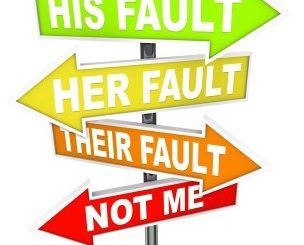A Great, Tragic Divide

The timing couldn’t have been more uncanny. Or more sad.
It was the week of the Torah portion of Noah when a flood of invective poured forth following a statement by the New Jersey Jewish Standard, a regional newspaper based in Teaneck, that it had erred by including among marriage announcements the intention of two young men to live together as a couple. According to the Midrash, the great flood in Noah’s time, which wiped out almost all of humanity, was especially destructive because of antediluvian society’s endorsement of “writing marriage contracts for men.”
The newspaper’s decision “not to run such announcements in the future” came in the wake of quiet protest by some local Orthodox rabbis. The firestorm of anger that later ensued has caused the paper to consider adding a flop to its flip.
Among comments posted online about the paper’s decision to discontinue same-sex couple announcements were: “disgusting and abhorrent,” “craven and ridiculous,” “despicable” and a “shande.” Several media, including The New York Times and the New York Jewish Week, saw fit in their reports on the brouhaha to remind readers of the suicide of a homosexual college student several days earlier, as if to subtly convey the notion that support for maintaining the traditional meaning of marriage somehow begets such things.
The Conservative movement’s Rabbinical Assembly weighed in with its own creative take on the controversy, couching it as a “free press” issue and the newspaper’s decision as “censorship.” Leaving aside the assertion of a relationship between the First Amendment and simcha announcements, one finds it hard to imagine the assembled rabbis similarly condemning a Jewish newspaper’s policy to, say, not include announcements of Jews for Jesus events. There is a rather large difference, it shouldn’t need to be said, between censorship and standards.
In any event, newspapers, particularly nondenominational Jewish ones, are ultimately beholden not to the marketplace of ideas but to the marketplace. The New Jersey Jewish Standard may be an exception, and its decision to cease publication of celebrations of gross violations of the Torah’s moral code might in fact have been born of sincere concern for its Orthodox readers’ feelings. But it may also have been a cold business decision intended to not jeopardize subscriptions and advertisements from the Orthodox community. If so, well, industry strategies often change with changed circumstances and the uproar at the paper may yet yield a new business plan.
But the real story here isn’t about a community organ or the relative clouts of Orthodox and non-Orthodox consumers. It isn’t, either, the story of two young men who want to live as a married couple. It is about the immeasurably vast chasm between so large a part of the non-Orthodox Jewish community and its religious heritage.
Few moral precepts are as deeply rooted in the Torah as the one forbidding Jews – and non-Jews as well, since it is part of the Seven Noahide Commandments governing all humankind – from engaging in the behavior that supporters of the young men insist must be celebrated in the pages of an ostensibly Jewish newspaper. The Scriptural sources are well known. The Midrash associates homosexual acts not only with the great flood of Noah’s time but with the Canaanite peoples whose behavior defiled the Holy Land and caused their expulsion from it. A statement in the Talmud asserts that one of human society’s redeeming qualities has been its refusal to countenance the extension of matrimony to pairs of men.
Judaism’s rejection of homosexual activity as something deeply wrong cannot be denied. It is as essential a part of the Jewish faith as the rest of the moral and ethical imperatives in the Torah. That Jews today have been led to feel they can erase it from that canon is not only outrageous but tragic.
“It is sad to think a small group can influence a newspaper like this,” said one of the young men whose announcement begat the controversy, adding – in an unfortunate choice of words, considering the week’s Torah-reading – “But I’ve been flooded with support.”
He has, indeed. And that’s precisely the tragedy.
He and his friend and their supporters are frighteningly removed not only from the Jewish religious heritage’s teaching about human relationships but from the lesson of the Torah portion following that of Noah.
In that portion, Lech Lecha, we are introduced to Abraham, the first of the Jewish people’s forefathers. He was known as the “Ivri” – the “other sider.” Because, Jewish tradition explains, he was not afraid of taking a stand for G-d and truth even when the rest of the world remained on the opposite side of the divide.
© 2010 AM ECHAD RESOURCES
[Rabbi Shafran is director of public affairs for Agudath Israel of America.]
All Am Echad Resources essays are offered without charge for personal use,
sharing and publication, provided the above copyright notice is appended.
Communications and subscriptions: [email protected]



Recent Comments